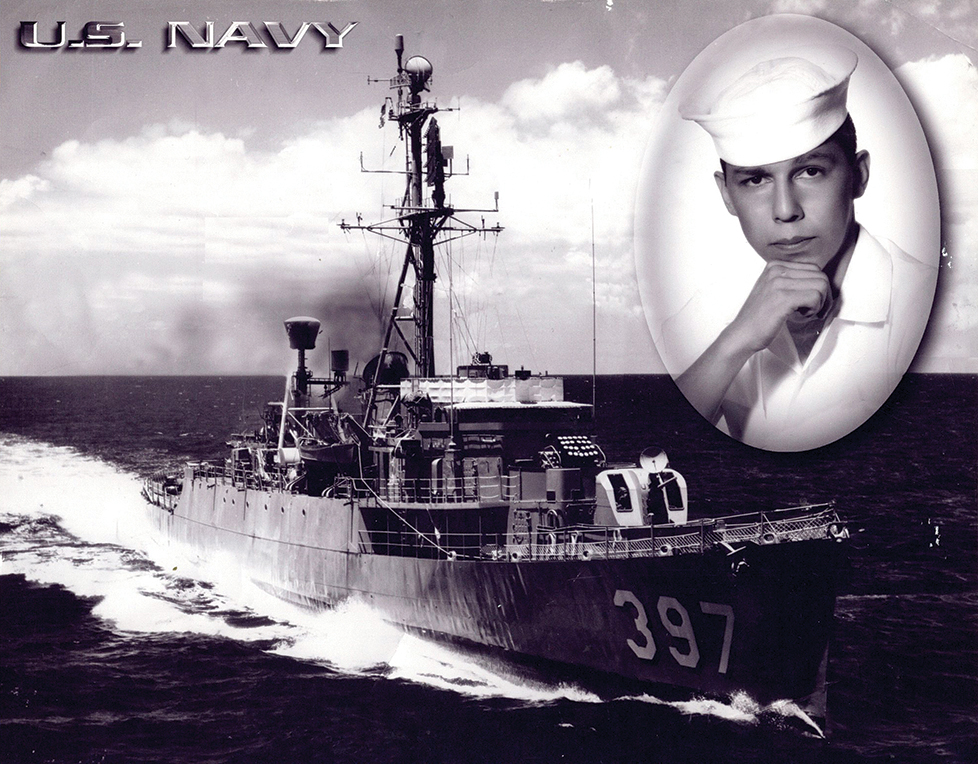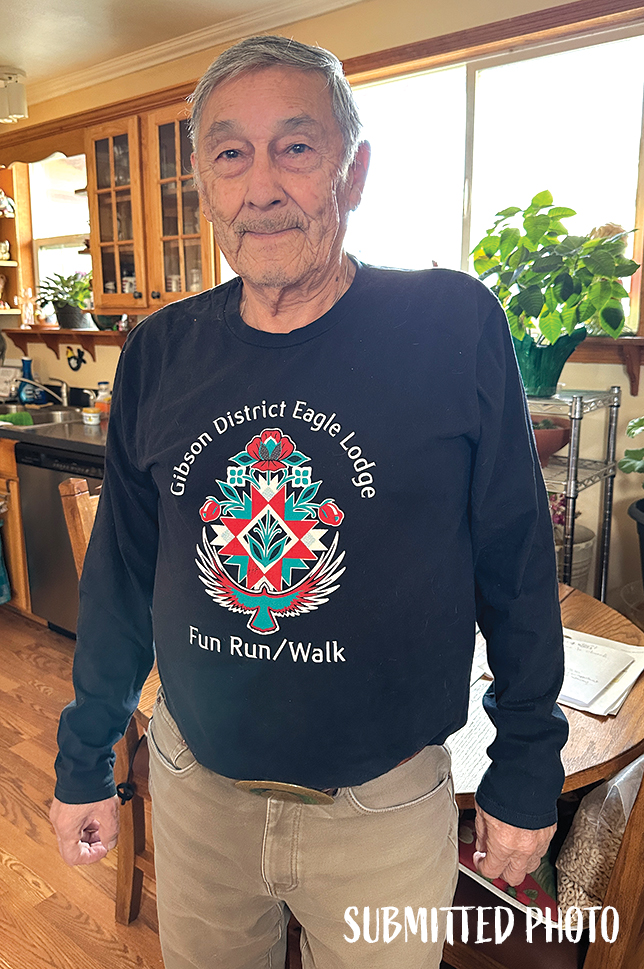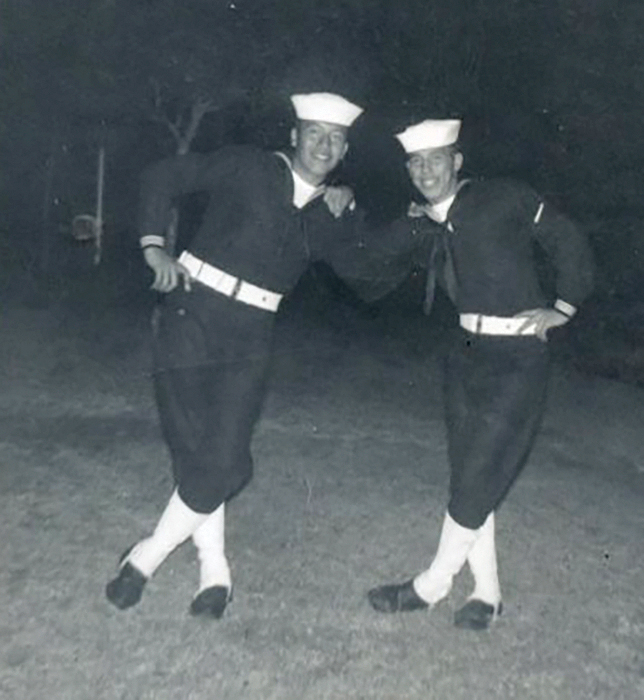 U.S. Navy Veteran JJ Wadsworth: Time in service ‘best part of my life’
U.S. Navy Veteran JJ Wadsworth: Time in service ‘best part of my life’

Jesse James "JJ" Wadsworth, U.S. Navy Veteran. (Submitted photo)
By LORI ANN EDMO
Sho-Ban News
FORT HALL — Jesse James “JJ” Wadsworth said he and Kay Pokibro went to see their buddy Delano Metz off when he enlisted in the U.S.Navy, but they also ended up in the service too.
“So we went down and waved goodbye to him and everything – lo and behold, we ended up in the Navy too!” JJ said as they didn’t know the recruiter was there. He looked at us and said, “Oh you guys are all buddies?” “We said ‘yeah’ and he says well I can get you all in on the buddy system.” That was the recruiter’s way of getting them interested. “But that’s how I ended up in the Navy in 1960,” Wadsworth said. “We fell for it.”
JJ said he was in his 20s and after joining, the recruiter sent them to Seattle then they caught a flight out of there to San Diego, California for boot camp. They thought they would stick together while in the service, but they were all split up. JJ ended up in Hawaii, Kay went to Long Beach and Delano stayed in San Diego.
Initially JJ said his ship hadn’t come in yet so he ended up on Operation Deep Freeze in the South Pole for about four months on an inactive service craft. Then he was on the ship USS Wilhoite 397, a destroyer escort, on his first sea duties. He would spend upwards of a year out on the ocean. After that it was three months at a time out at sea. The ship patrolled the northern Pacific and they were always near Russian ships. “We was keeping an eye on the Russian fleet,” he said. The ship would patrol the area and would pass the word on what Russians ships were going out — where they were headed. There were problems between the U.S. and Russia, so if there was a war that broke out, J.J. said their ship would have been the first casualties but that didn’t happen. “Their warships would go by us all the time.”
They were also shipped south to monitor ships headed towards Vietnam. He was stationed out of Pearl Harbor. He was given the name “Running Bear” while in the Navy just because he was an Indian.

JJ Wadsworth, present day.
The second ship he served on was the USS Walke, Hull 723. On that ship they escorted aircraft carriers and troop ships.
While on ship, he was a ship fitter, did all the hull work, was a welder and did damage control. He said the ships were old, so he did a lot of repair. He recalled one time there was a big storm that caused a crack in the ship, “that’s when I really had to go to work and keep that crack from spreading.” It was busy on the ship, there was always something to do, “when they needed things made, I made them, usually at request of the captain or the commander,” he continued. On the first ship there was more than 300 crewmen.
JJ said he liked being out on the ocean on board ship despite there not being much out there. However, the air was always fresh — never had any pollution of any kind.
Eventually he ended up in Long Beach, Calif. where he served the rest of his time in the Navy. JJ was honorably discharged in 1965. It was the “best part of my life I had at the time, it made a man out of me, what it did.” His time in the Navy taught him a lot and he learned a lot. One thing he did learn about was foreigners — people from Japan, Vietnam. He said he got to know about their ways of life as they had it a lot harder than what we do, their people were mostly poor, noting those in the service, they’d send their money back home to their families.
Wadsworth comes from a military family. His father William J. Wadsworth was in the U.S. Army. Bud was in the National Guard. Sheridan was in the U.S. Marines and Caddo was in the U.S. Army too.

JJ with his friend Kay Pokibro in the service. (Submitted photo)
After his discharge, JJ came back home and went to work. He also met the love of his life Bev Diaz and they married.
He worked at Bannock Steel and later Gate City Steel. He was a carpenter at Boise Cascade building houses at the airport. He then started working at BIA law enforcement in 1969 where he learned both tribal law and federal law. He was also sent to training in Georgia for criminal investigation. Over the years he worked closely with the FBI that has jurisdiction over major crimes on Indian reservations.
JJ worked 16 years at Fort Hall then transferred to the Nez Perce Reservation in northern Idaho where he retired in 1990. He said the police action was milder at Lapwai than Fort Hall. He didn’t take any “sass” from people when they were detained after working with some of the rugged people in Fort Hall so some of the Lapwai people thought he was mean. Because of his investigation training, he also traveled to the Coeur d’Alene and Kootenai Reservations do work.
In his retirement, JJ continues to do carpentry such as building a deck on his home and welding. He also enjoys camping.





